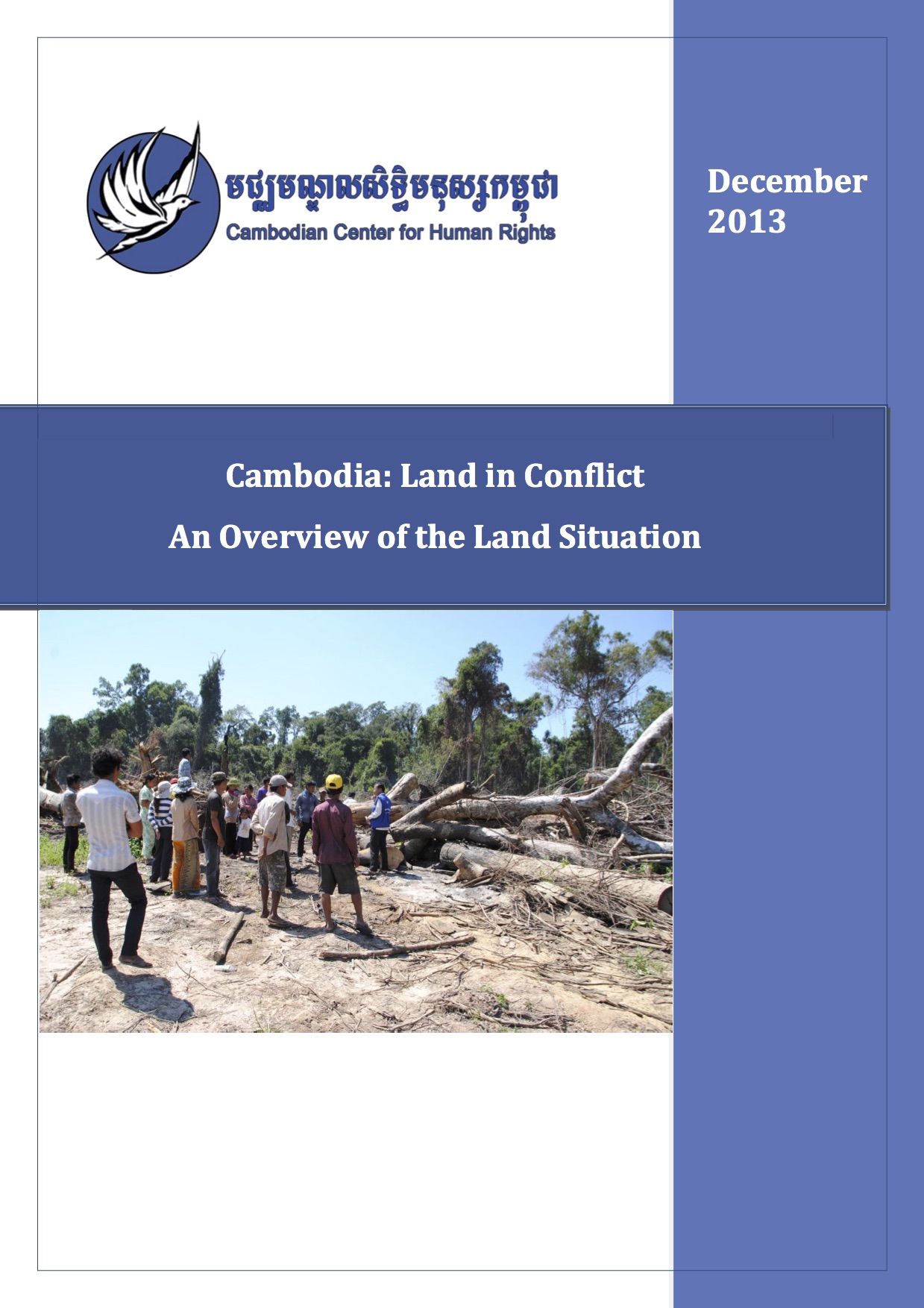
Cambodia: Land in Conflict
Publication Year: 2013 / Sources: Cambodian Center for Human Rights (CCHR)Aware of the growing need for immediate and fundamental land policy reforms in Cambodia, CCHR has produced this Report in order to provide an overview of the land rights situation as it developed in Cambodia throughout 2012 and in the first half of 2013. The Report provides an introduction to the legal, institutional and policy framework related to land and an overview of the root causes and impact of the land conflict affecting the country. The Report also formulates concrete recommendations for the improvement of the land situation in Cambodia and will be used as an advocacy tool to engage with the Cambodian people, national and international organizations, donors, embassies, and of course, with the new RGC.
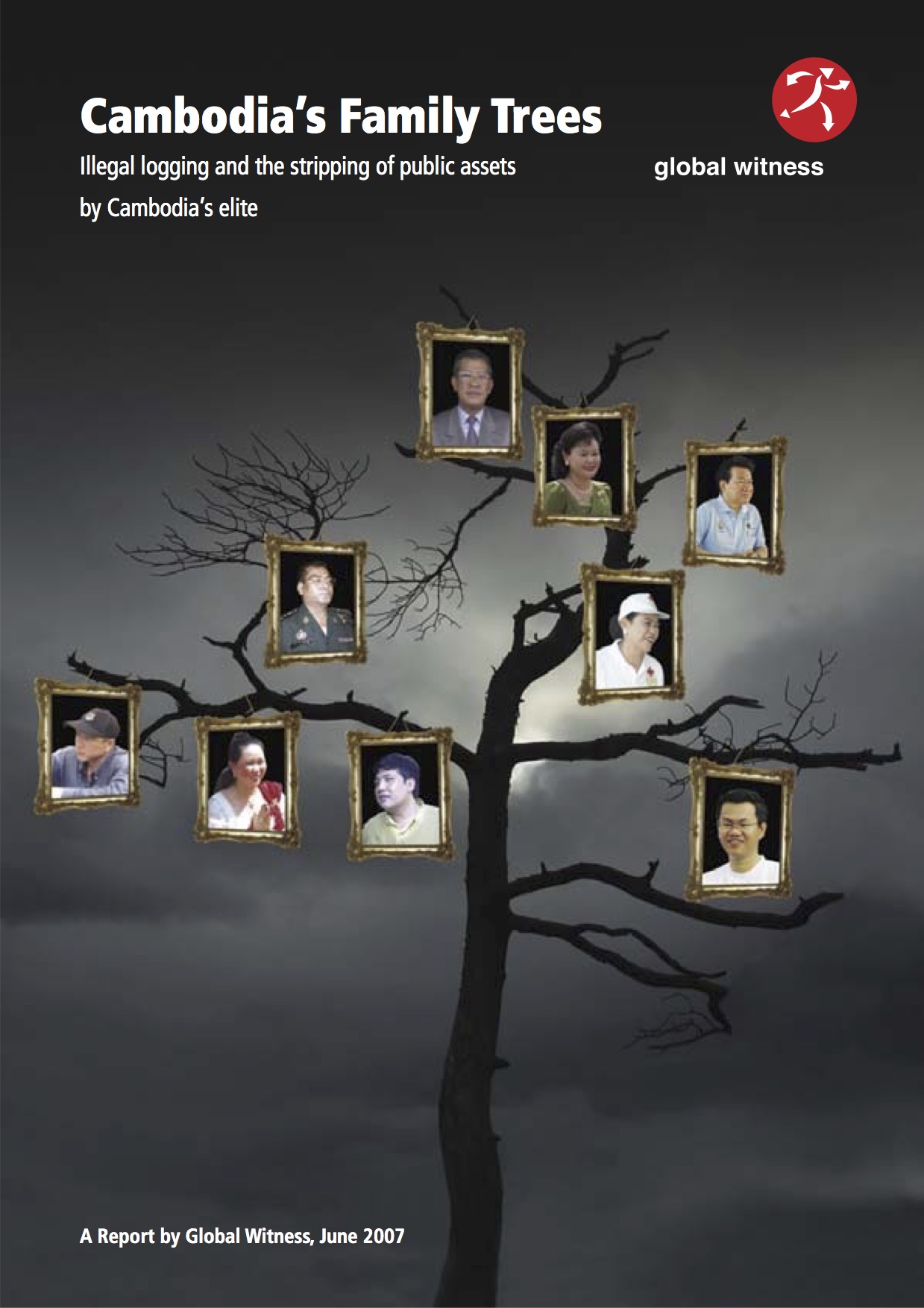
Cambodia’s Family Trees: Illegal logging and the stripping of public assets by Cambodia’s elite
Publication Year: 2007 / Sources: Global WitnessCambodia’s shadow state generates much of its illicit wealth via the expropriation of public assets, particularly natural resources, as well as through institutionalised corruption. With particular reference to the forest sector, this report looks at three of the main ways in which this works.
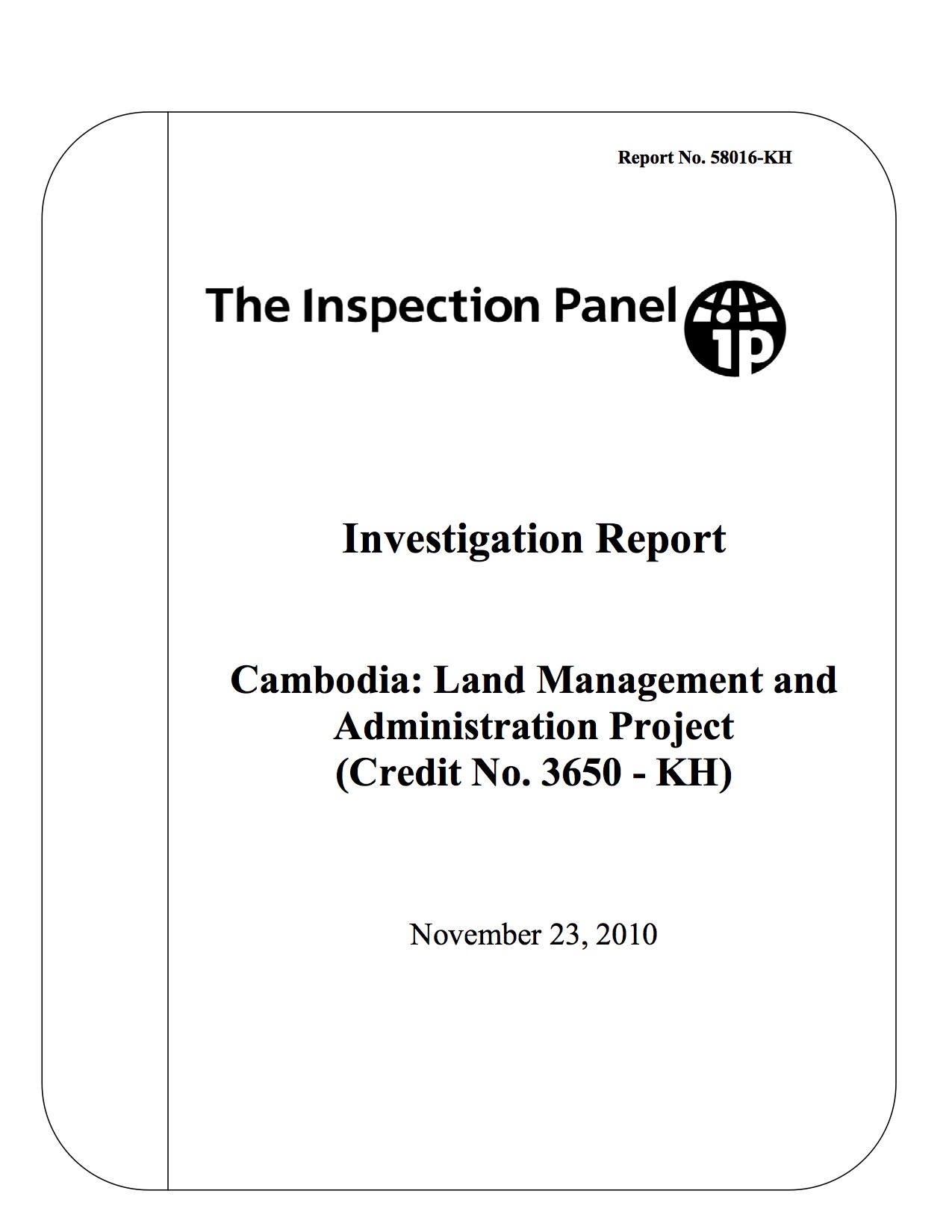
Cambodia: Land Management and Administration Project
Publication Year: 2010 / Sources: The Inspection PanelThe Inspection Panel has prepared this Investigation Report in response to the Request for Inspection received on September 4, 2009 from the Centre for Housing Rights and Evictions (COHRE), which submitted the Request on behalf of communities claiming to have been affected by the Land Management and Administration Project (hereinafter referred to as the “Project” or “LMAP”) in Cambodia. These communities are situated in the Boeung Kak Lake (BKL) area, within the Sras Chok commune, Daun Penh district in the Municipality of Phnom Penh. The Requesters asked the Panel to keep the names of the affected people and the villages where they live confidential. The Panel registered the Request for Inspection on September 24, 2009. Management submitted its Response to the Request on November 2, 2009.
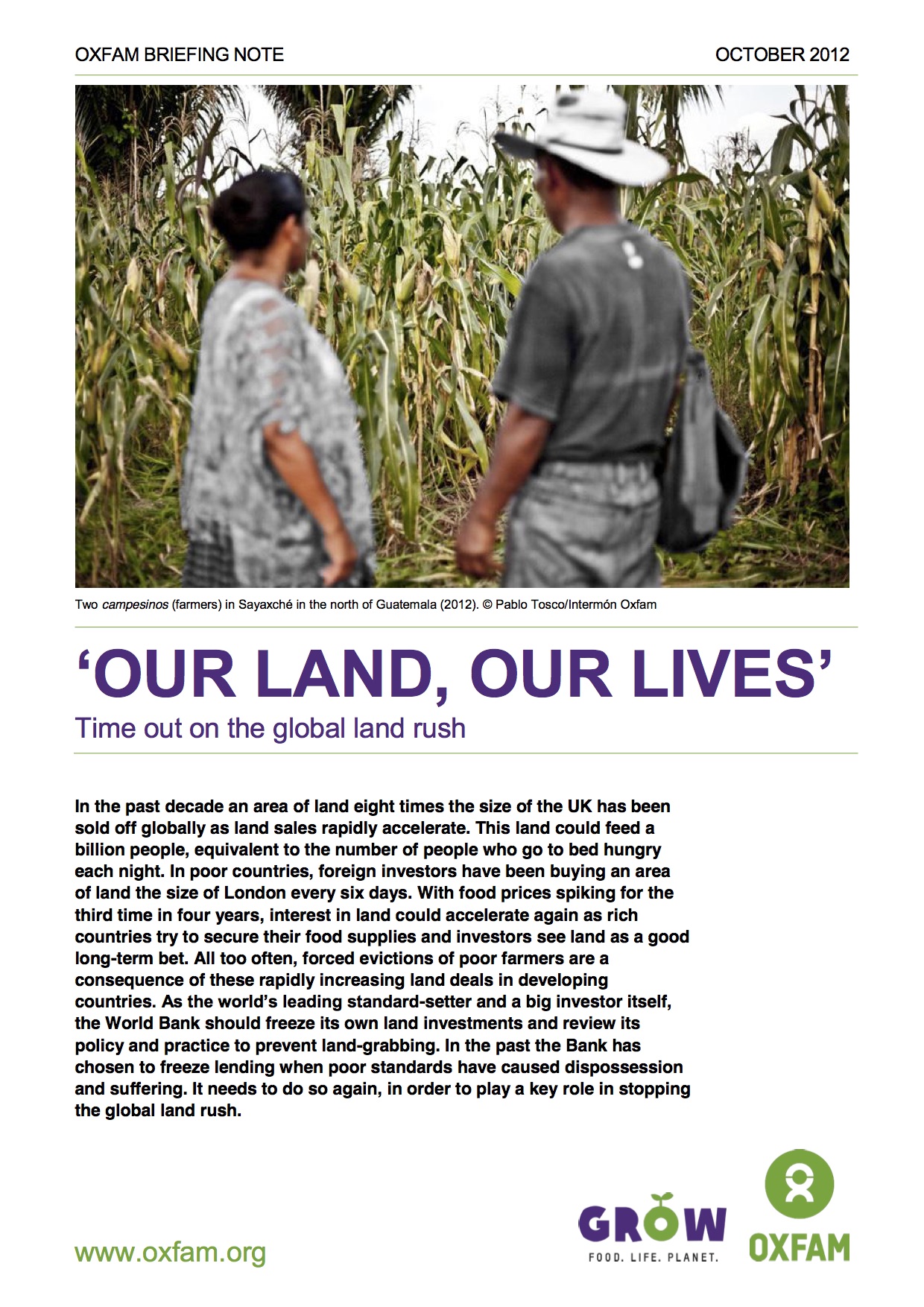
‘Our Land, Our Lives’: Time out on the global land rush
Publication Year: 2012 / Sources: OxfamIn the past decade an area of land eight times the size of the UK has been sold off globally as land sales rapidly accelerate. This land could feed a billion people, equivalent to the number of people who go to bed hungry each night. In poor countries, foreign investors have been buying an area of land the size of London every six days. With food prices spiking for the third time in four years, interest in land could accelerate again as rich countries try to secure their food supplies and investors see land as a good long-term bet. All too often, forced evictions of poor farmers are a consequence of these rapidly increasing land deals in developing countries. As the world’s leading standard-setter and a big investor itself, the World Bank should freeze its own land investments and review its policy and practice to prevent land-grabbing. In the past the Bank has chosen to freeze lending when poor standards have caused dispossession and suffering. It needs to do so again, in order to play a key role in stopping the global land rush.
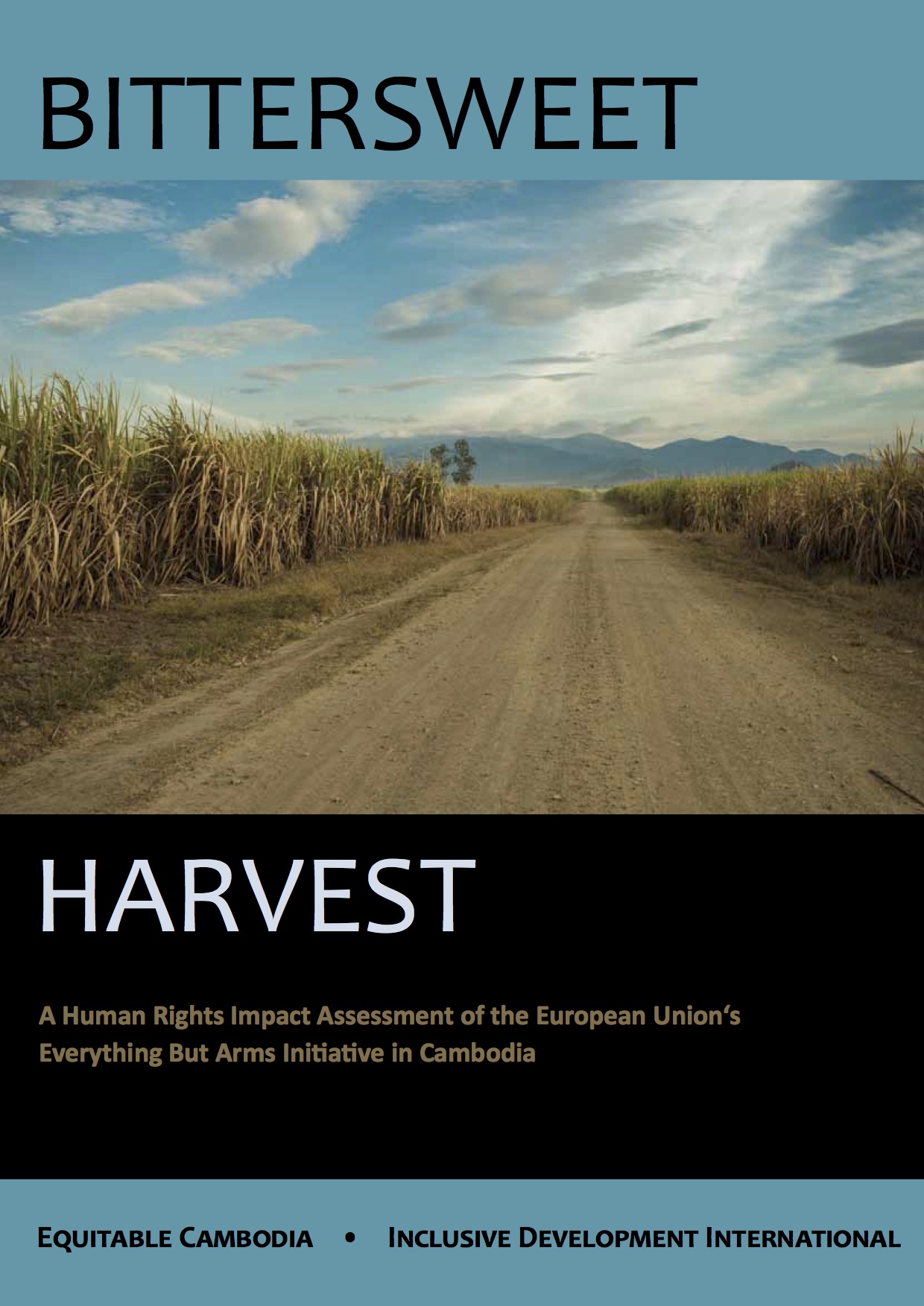
Bittersweet Harvest: A Human Rights Impact Assessment of the European Union‘s Everything But Arms Initiative in Cambodia
Publication Year: 2013 / Sources: Equitable Cambodia and Inclusive Development InternationalIn Cambodia today, the government is leasing vast quantities of land to private investors to develop large-scale agro-industrial plantations. The leased land often overlaps with the private land of small- scale food producers and the common lands and natural resources that sustain rural communities. Forcibly deprived of their productive base by local and foreign investors backed by state security forces, hundreds of thousands of Cambodians who had pulled themselves out of poverty are once again struggling to survive.
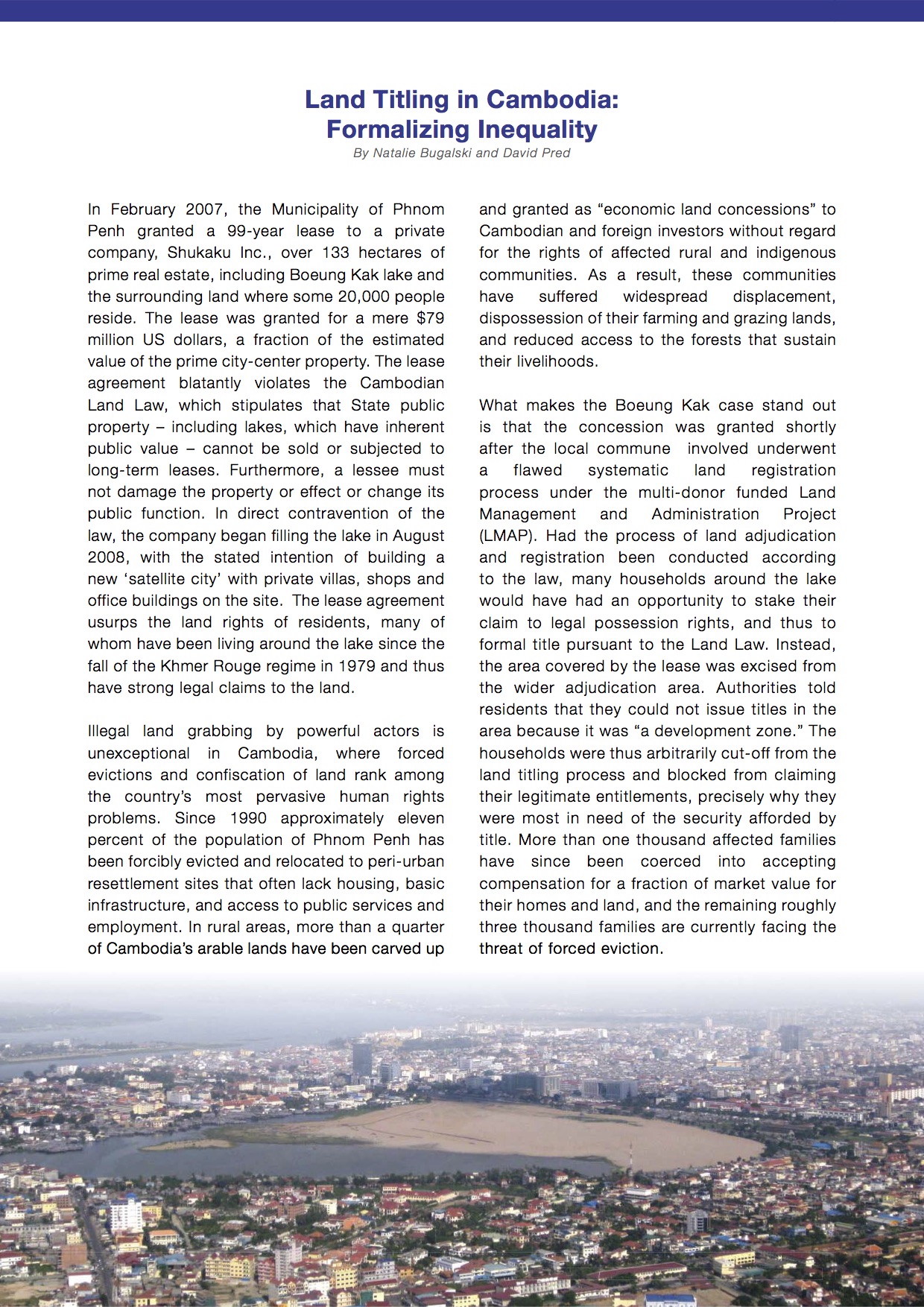
Land Titling in Cambodia: Formalizing Inequality
Publication Year: 2009 / Sources: Bridges Across Borders Cambodia (BABC)Illegal land grabbing by powerful actors is unexceptional in Cambodia, where forced evictions and confiscation of land rank among the country’s most pervasive human rights problems. Since 1990 approximately eleven percent of the population of Phnom Penh has been forcibly evicted and relocated to peri-urban resettlement sites that often lack housing, basic infrastructure, and access to public services and and granted as “economic land concessions” to Cambodian and foreign investors without regard for the rights of affected rural and indigenous communities. As a result, these communities have suffered widespread displacement, dispossession of their farming and grazing lands, and reduced access to the forests that sustain their livelihoods.
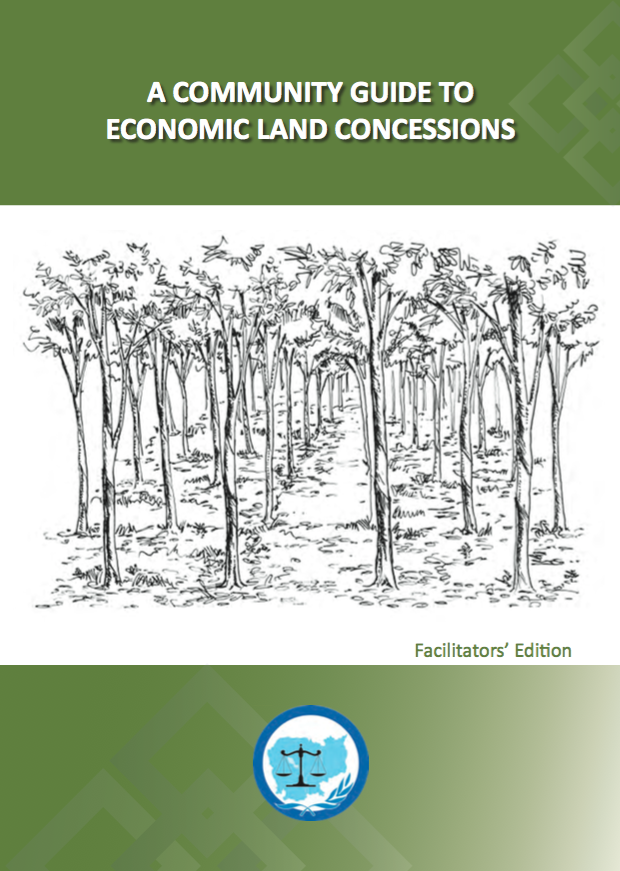
Access to Land Title in Cambodia
Publication Year: 2012 / Sources: The NGO Forum on CambodiaThe primary focus of the research was to identify when and how exclusions and other barriers are preventing people from accessing SLR (Systematic Land Registration), and how this is impacting on the broader benefits of the titling system. Here, “exclusion” refers to those who have been excised from adjudication areas prior to or during the process of survey and demarcation, and to those cases where land parcels are left unregistered due to having “unclear status”. The study also sought to gather more detail on the incidence of disputes during the SLR process, and the issue of subsequent registration of land – the process of re-registering titled land when it is transferred to a new owner. This study has drawn on existing research and aims to build on those findings by looking in more detail at how the system is being implemented in practice in four target areas spread across the country.

A Community Guide to Land Concessions
Publication Year: 2013 / Sources: Equitable CambodiaThis guide is made for Cambodian communities who are affected by ELCs (Economic Land Concessions), or are likely to be affected in the future. It is divided into three parts: ELCs and Communities, ELCs and the Law, and Taking Action. Part One covers the basics of what industrial agriculture and ELCs are, the potential benefits and risks, and the process of Environmental Impact Assessment and public participation. In the Part 2 we discuss the main laws that apply to ELCs in Cambodia, and in Part 3 we look at what communities can do if they are affected by an ELC project.
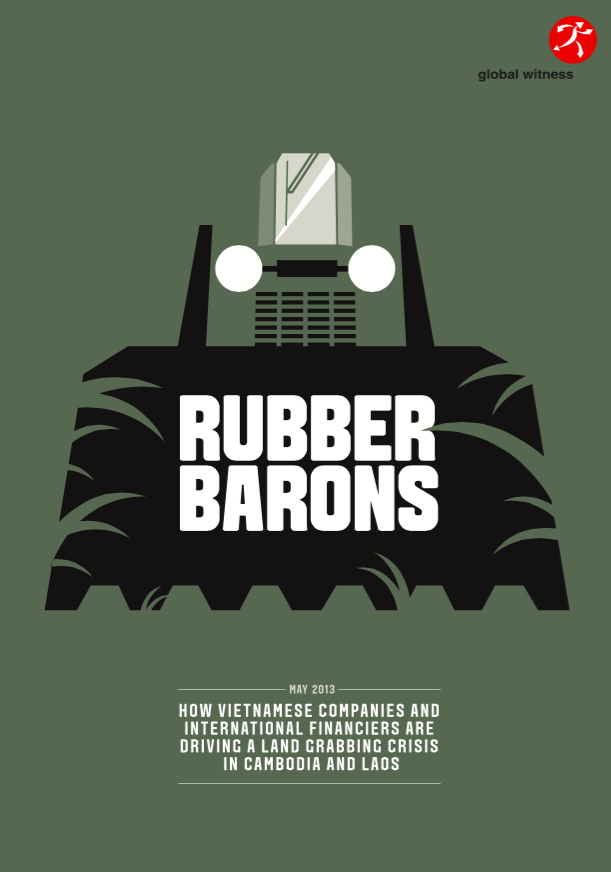
Rubber Baron
Publication Year: 2013 / Sources: Global WitnessCambodia and Laos are in the grip of a land grabbing crisis, driven by Vietnamese ‘rubber barons’. This report reveals how two of Vietnam’s largest companies, Hoang Anh Gia Lai (HAGL) and the Vietnam Rubber Group (VRG), have leased vast tracts of land for plantations in Laos and Cambodia, with disastrous consequences for local communities and the environment. Close ties to corrupt political and business elites provide them with impunity, deals are cloaked in secrecy and they are bankrolled by international finance such as Deutsche Bank and the International Finance Corporation (IFC).
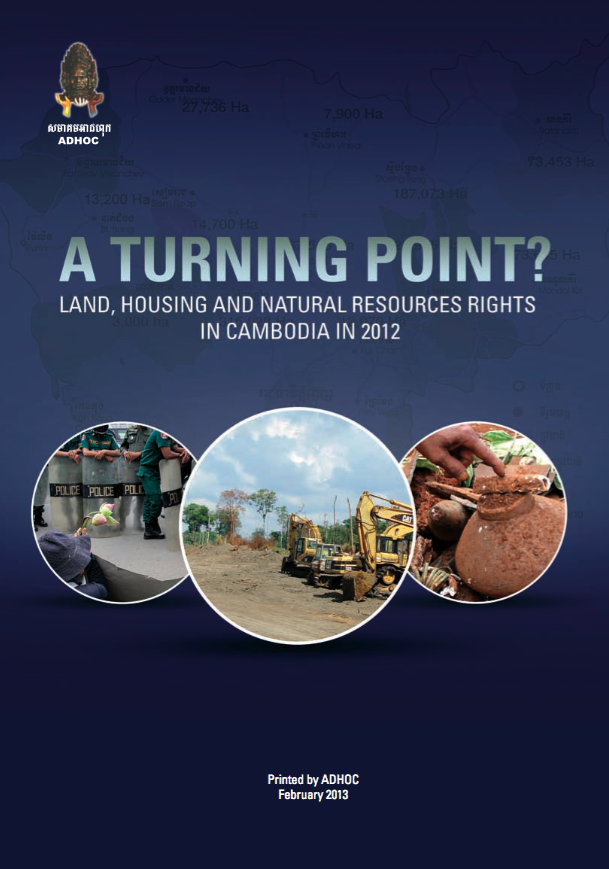
A Turning Point? Land Housing and Natural Resources Rights in Cambodia in 2012
Publication Year: 2013 / Sources: ADHOCThis report is intended to be comprehensive. It deals with land concessions, land disputes, forced evictions and encroachment on natural resources from a human rights and development perspective. However, extractive industries are beyond its scope.
